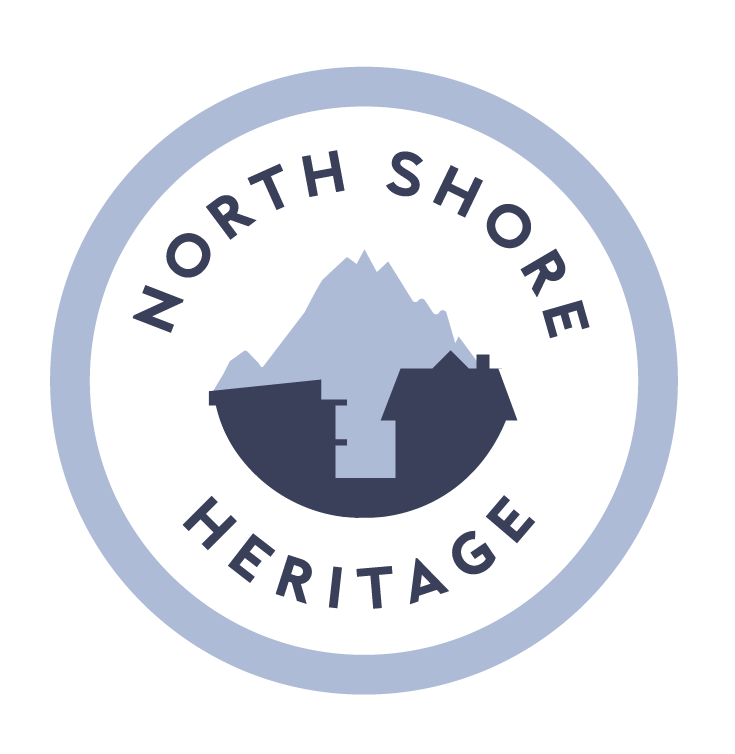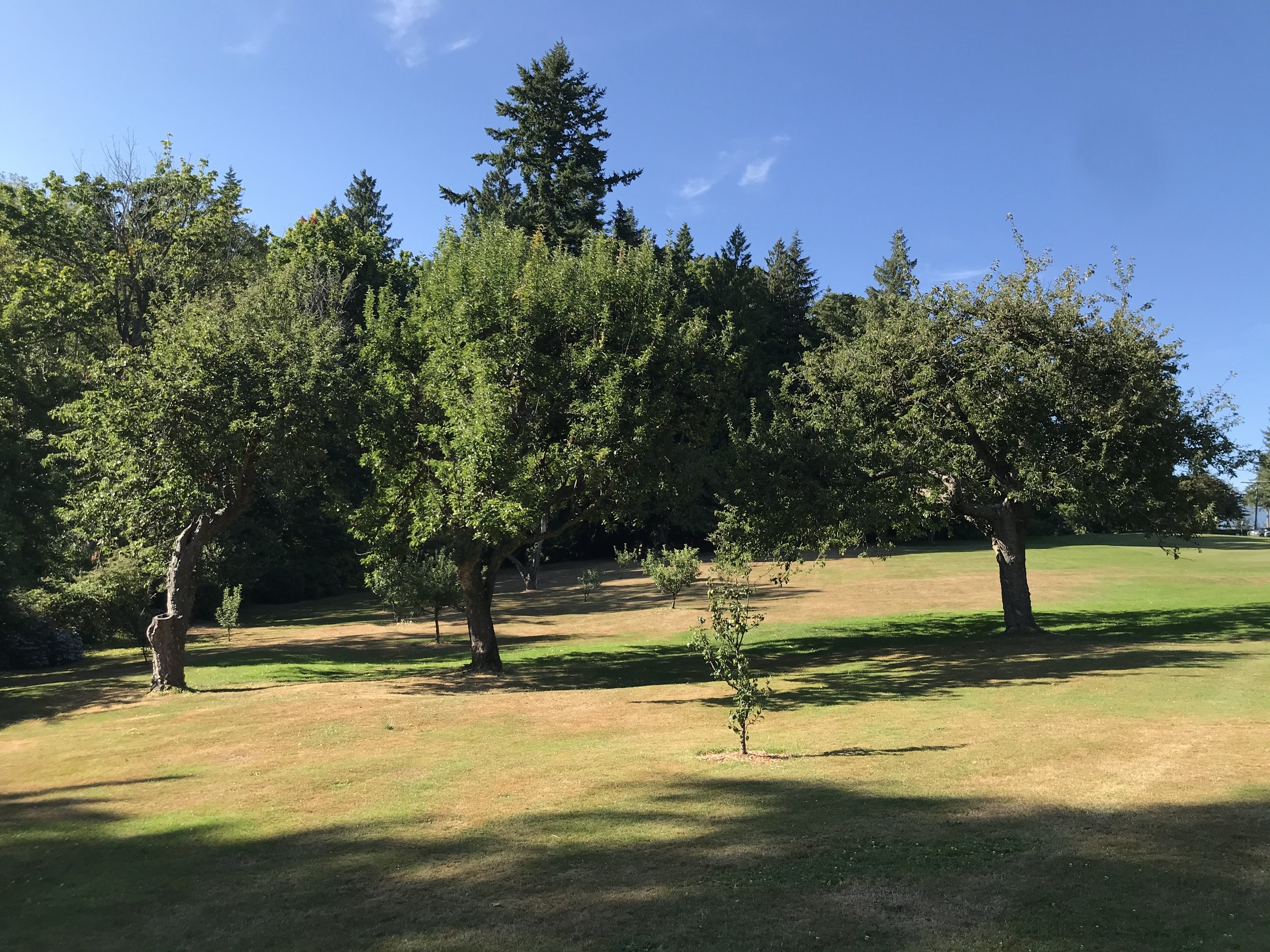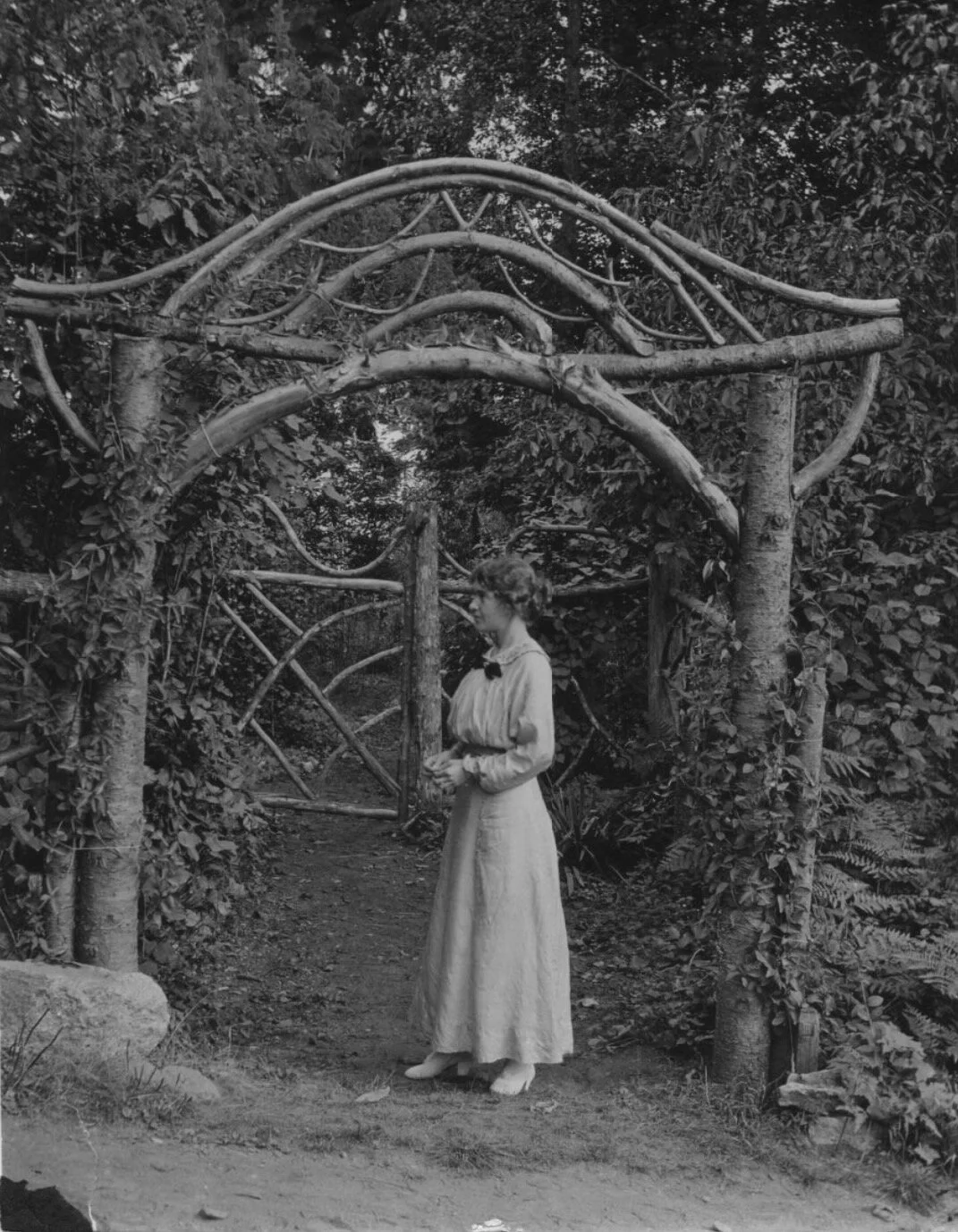Although this spring has felt more like an extended winter, the days are getting longer, the flowers are finally blooming, and the weather is slowly warming up. People have been celebrating the coming of spring for thousands of years, and for many years so did the people of North and West Vancouver with annual May Day celebrations throughout the community.
Lilian McNair- First May Queen with 3 attendants. 1909. Image Courtesy of MONOVA/North Vancouver Archives. INV 9187
May Day is no longer celebrated on the North Shore, but our neighbours in New Westminster have the longest continually observed May Day in the British Commonwealth. Queen Elizabeth II and Prince Phillip even attended a May Day celebration in New Westminster in 1971!
In 1870, at the end of the gold rush, New Westminster was no longer the capital of British Columbia and the population had dwindled to a mere 500 people. The future of the city seemed grim, and morale was low, so a group of local citizens decided to organize the very first May Day on May 4, 1870, to bring cheer to the community.
May Queen Kitty Loutet's decorated horse-drawn carriage behind line of North Vancouver City firemen. 1922-1927. MONOVA/North Vancouver Archives. INV 10784
Scholars believe that May Day originated in ancient Europe and possibly as far back as the Roman era as a celebration of Flora, the goddess of flowers, Dionysus, the god of wine and festivity, and Aphrodite, the goddess of love and beauty. It was a celebration to ensure the fertility of the crops, livestock, and community. It is also linked to Beltane, the Gaelic spring festival celebrated on May 1st, and was celebrated as a holiday in many pagan traditions related to agriculture and fertility. Regardless of its origins, the celebration of spring was one of joy and light-hearted fun in the outdoors as the warmer weather of spring and summer began.
Unfortunately, the pagan roots of May Day celebrations were not popular with the established Church or State in Europe. In the sixteenth century, there were huge riots when May Day was banned. Fourteen rioters were hanged, and Henry VIII is said to have pardoned more than 400 rioters sentenced to death. By 1645, May Day had mostly disappeared when Oliver Cromwell and his Puritans were in power. Maypole dancing was described as “a heathenish vanity generally abused to superstition and wickedness” and legislation was passed to ban maypoles across the country.
In 1660, the celebration of May Day was restored. ‘The Merry Monarch’, King Charles I, was back on the throne and to help ensure the support of his subjects, he erected a 40-metre-high maypole in London’s Strand. The pole signalled the return of fun times and remained standing for almost 50 years.
In Europe and North America, common May Day traditions include dancing around the maypole with ribbons and crowning the May Queen. The maypole is a tall wooden pole erected during many European folk festivals and often involves a dance taking place around it. In the Lower Mainland, the schoolteachers would teach the children the maypole dance and each school would often have their own maypole.
North Vancouver's first maypole dance. West side of Victoria Park. May Queen Lilian McNair and some others identified. 1909. Image courtesy of MONOVA/North Vancouver Archives. INV 3208
The May Queen is the symbol of May Day and of springtime. She wears a white gown to symbolize purity. The May Queen must walk or ride at the front of the parade and give a speech after being crowned with a tiara. In some areas in the Lower Mainland, the students at each school would vote for one girl from Grade 4 or 5 to run as May Queen. All the names were then put in a hat to determine who would be crowned May Queen. The runners up were Maids of Honour.
Maid of Honour Alice Stewart with others. Carriage at Ottawa Gardens. 1929. Image courtesy of MONOVA/North Vancouver Archives. INV 8427
The celebration of May Day has brought much joy to communities for thousands of years and continues to be celebrated close to home in New Westminster. After a 2-year hiatus due to the Covid-19 pandemic, the celebrations are scheduled to resume on Saturday May 28th at Queens Park. It will include the crowning of the new May Queen, and traditional folk and maypole dancing. With the school district no longer involved in organizing May Day, the event is now entirely run by volunteers and community support. If you are ready to emerge from your winter den and welcome our long overdue spring, perhaps a visit to New Westminster’s May Day celebrations is just what you need!









